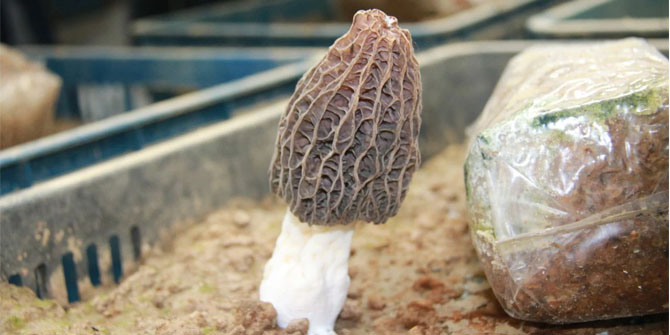Morel Cultivation: From Wheat to Sustainability

The core ingredients of the nutritional bag of the morel, the magical container that nourishes its life, initially focused on wheat, a traditional and abundant crop. However, with the increasing refinement of morel cultivation technology and the advancement of large-scale production, the proportion of wheat in the nutritional bag has quietly changed, from 30% to 40% in the early days of domestication, and gradually climbed to 60% to 80% significant level, or even higher. This change not only witnessed the progress of agricultural science and technology, but also heralded the flexible adjustment of planting strategies.
In the secret of Morchella's growth, the carbon source almost entirely comes from these carefully formulated nutrient bags, while the nitrogen source relies more on the nourishment of the soil, especially the valuable nutrients released after the wheat in the nutrient bags decomposes. However, it is worth noting that with the continuous exploration of planting efficiency and cost control, the ingredients of Morchella's nutrient bags are quietly undergoing a transition from wheat to diversified raw materials.
Currently, a significant trend is taking shape: farmers are beginning to try to partially replace wheat with corn and other food crops, and some even boldly use non-traditional raw materials such as cottonseed husks to completely replace wheat, and have achieved encouraging results. This change not only opens up a new raw material path for the cultivation of morels, but also alleviates the dependence on wheat and other food crops to a certain extent, demonstrating the positive attitude of the morel cultivation industry in not posing a threat to food security.
More importantly, by scientifically and rationally adjusting the amount and proportion of nutrient bags, growers can effectively control production costs while ensuring the yield and quality of morels, achieving a win-win situation of economic and ecological benefits. This series of innovations and practices not only lays a solid foundation for the sustainable development of the morel industry, but also provides valuable experience for the diversified development of the agricultural sector.

(1)(1).jpg)
 CONTACT
CONTACT